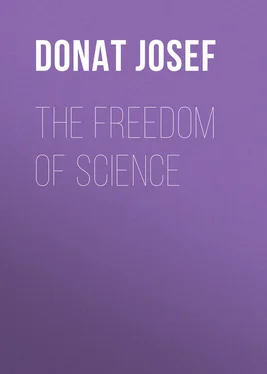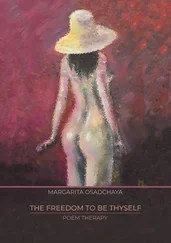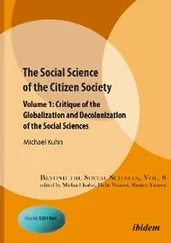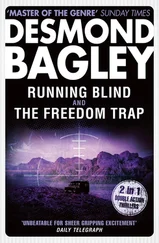Josef Donat - The Freedom of Science
Здесь есть возможность читать онлайн «Josef Donat - The Freedom of Science» — ознакомительный отрывок электронной книги совершенно бесплатно, а после прочтения отрывка купить полную версию. В некоторых случаях можно слушать аудио, скачать через торрент в формате fb2 и присутствует краткое содержание. Жанр: foreign_antique, foreign_prose, на английском языке. Описание произведения, (предисловие) а так же отзывы посетителей доступны на портале библиотеки ЛибКат.
- Название:The Freedom of Science
- Автор:
- Жанр:
- Год:неизвестен
- ISBN:нет данных
- Рейтинг книги:4 / 5. Голосов: 1
-
Избранное:Добавить в избранное
- Отзывы:
-
Ваша оценка:
- 80
- 1
- 2
- 3
- 4
- 5
The Freedom of Science: краткое содержание, описание и аннотация
Предлагаем к чтению аннотацию, описание, краткое содержание или предисловие (зависит от того, что написал сам автор книги «The Freedom of Science»). Если вы не нашли необходимую информацию о книге — напишите в комментариях, мы постараемся отыскать её.
The Freedom of Science — читать онлайн ознакомительный отрывок
Ниже представлен текст книги, разбитый по страницам. Система сохранения места последней прочитанной страницы, позволяет с удобством читать онлайн бесплатно книгу «The Freedom of Science», без необходимости каждый раз заново искать на чём Вы остановились. Поставьте закладку, и сможете в любой момент перейти на страницу, на которой закончили чтение.
Интервал:
Закладка:
There is no obedience to faith which is not internal assent and conviction , and there is no clinging to dogmas which is not based on motives of faith, or which could not at any time be subjected to scientific investigation. If the term “blindness of belief” were intended to express only that the believer holds the revealed doctrine to be true, not because he has discovered its truth by his own reasoning, but on the authority of God, then we might suffer the misleading word. But it is utterly false in the sense that the believer has no conviction at all. Even though others have it not, the faithful Catholic, the believing Christian, has it, and it is personal conviction. He has convinced himself that God has spoken, and of the credibility and hence the truth of the revealed doctrine, by his own reason, and this is why he assents.
Still greater is the misrepresentation of the real motive of faith, if it is held to be the opinion of the Pope or of Roman Prelates. Wundt thus misstates the Catholic position: “Not every one can acquire knowledge. But any one can believe. The enlightened leaders of the Church, and the Church herself first of all, have knowledge, and by dint of authority determine what is to be believed” (Ethik, 3d ed., 1903, I, p. 342). According to the popular scientific propaganda of unbelief, we have to deal in the Church merely with “ignorant monks, Asiatic patriarchs, and similar dignitaries, some very superstitious, who, for instance, assembled in the third century and decided by vote that the Gospel is the word of God; we have to deal with men who have proved their incapacity and incompetence” ( Masaryk , Im Kampfe um die Religion, 1904, pp. 22-23).
Any one who shares such ideas about the supernaturalness of the Catholic Church has, of course, forfeited his claim to understand Catholic life and faith. The Catholic believes in his Church, not on any account of Asiatic patriarchs and superstitious dignitaries, but because she is led by the Holy Ghost, and the Pope must believe the same as the humblest of the faithful: neither the Pope himself relies upon his own judgment, nor does the Catholic who trusts in the word of the Pope.
We add a few remarks which may further illustrate the action of faith.
The knowledge of the fact of revelation, hence of the credibility of the truths revealed, is certain, as shown above. Nevertheless, it does not compel reason to assent. Under ordinary circumstances it would be impossible to think of one's own existence, of the elementary laws of mathematics, without being constrained by the evidence to give direct internal assent. But insight into the truth of a thing is not always of this high degree of clearness. In such cases it is an empirical law of the mind that reason discerns of itself the logical necessity, that is, if it desires to proceed according to the merits of the case, without, however, acting under physical constraint. There remains then the determination, the command of the will. This is generally true of many judgments about natural things, but especially true of belief. The knowledge of the fact of revelation is true and certain, though it might be still clearer. The truths offered by divine revelation are too deep for us to comprehend them fully; they imply questions and difficulties for us to ponder. We feel the physical possibility of pondering these difficulties, although we see at the same time that the difficulty is exploded by the certainty of the fact of revelation; but we remain free in giving our assent.
Herein lies the possibility of meritorious faith, the possibility of the creature rendering to God the free tribute of his free submission. At the same time it opens the possibility of turning voluntarily to doubts, and of submitting to them more and more, till the mind becomes clouded and ensnared by error. Thus, since faith depends on free will, the will is strictly commanded to impel the intellect to assent and cling to faith and to put aside doubts. God has revealed the truths of faith that they may be firmly believed.
Hence faith is a product of the will also, and may become part and parcel of the sentimental life. Firmly believed, revealed truths engender in man love and gratitude, fear and hope. And being beautiful and comforting, they are embraced fervently by the heart, and become objects of desire, sources of comfort and happiness. Nevertheless they are in themselves, and remain, rational judgments, based upon insight and knowledge; just as the fond recollections of home are and remain acts of cognition, though our affections are twined round those reminiscences like wreaths of evergreen.
What has just been said illustrates also another point, – the relation of faith to grace . The Vatican Council says: “Faith is a supernatural virtue by which, through the inspiration and co-operation of the grace of God, we believe to be true what He has revealed.” Faith is called a gift of God, a work of grace. But this must not mislead us to think that it is a mystical process, taking place in the human mind, indeed, but not moving along the natural course of human cognition, but along quite a different course: perhaps an immediate mystical grasp of the revealed truth, while natural intelligence stands aside, not understanding it. This would be returning to our starting point, – making faith anything but a judgment of the reason. It is a common doctrine of theology that the process of faith differs nothing in kind from the natural process of human intellect in its apprehension of the truth. It is belief on grounds recognized as sufficient motives for assent.
What then does grace do? Two things. First, it elevates the act of the soul in the process of believing to a higher sphere. Just as sanctifying grace elevates the soul itself to a supernatural sphere, permitting it to partake of the nature of God, so does the grace of faith raise the acts of the soul to the supernatural order. The kind of cognition, however, remains the same: just as a ring does not alter its form by being golden instead of silver.
In the second place, grace is assistance : it enlightens the intellect that it may be able to see more clearly, not giving to motives of faith an importance which they have not of themselves, but helping the intellect to see them as they are; removing the troubles and dangers of doubt which beset the mind, so that it may retain that calmness which generally accompanies the possession of the truth. The pledge of this assistance is given the Christian at baptism and with each increase of sanctifying grace. But the actual effect of grace depends on many conditions. If one omits prayer and neglects religious duties, deafens one's ear to the word of God, incurs knowingly unnecessary dangers to faith, forsakes the path of virtue, then grace may withdraw to a considerable extent; doubts become stronger, intellectual darkness and confusion increase, and man goes on apace towards infidelity.
This is the Catholic doctrine concerning faith.
Faith and Reason
But to return to our question: In what relation do faith and the duty to believe stand to freedom of research? We said that freedom of research consists in exemption from all unjust external restraint, that is, from those external hindrances to the action of the human intellect which prevent it from attaining its natural end. Now what is this natural end? The answer will make clear what restraint and laws must be respected by the human mind, and which may be rightly rejected.
On the coat-of-arms of Harvard University is written the beautiful word “Truth.” Upon the human mind, too, is inscribed the word Veritati — for the truth . The human mind exists for the sake of truth; for the truth it reasons and searches; it is its natural object, as sound is the object of the human ear, and light and colour the object of the eye. And truth attracts the mind strongly. The child wants the truth, and tries to get it by its many questions; the historian wants the truth, and tries to get it by his incessant searching and collecting. “I can hardly resist my craving,” William von Humboldt confesses, “to see and know and examine as much as possible: after all, man seems to be here only for the purpose of appropriating to himself, making his own property, the property of his intellect, all that surrounds him – and life is short. When I depart this life I should like to leave behind me as little as possible unexperienced by me” (apud O. Willmann , Didaktik als Bildungslehre, 3d ed., II, 1903, p. 7). The great physicist, W. Thomson , a few years ago closed a life of eighty-three years – he died in December, 1907 – devoted to the last to unabated search for the truth. It is true not all are called to labour in this field like W. Thomson . But every one who has capability may and should help to promote the noble work. Only they are excluded who do not want to look for the truth, or who are even ready, for external considerations, to pass off falsehood for the truth, unproved for established results. “I know of nothing,” says the ancient sage, Plato , “that is more worthy of the human mind than truth” (Rep. VI, p. 483 c.). And so the poet Pindar sings: “Queen Truth, the mother of sublime Virtue.”
Читать дальшеИнтервал:
Закладка:
Похожие книги на «The Freedom of Science»
Представляем Вашему вниманию похожие книги на «The Freedom of Science» списком для выбора. Мы отобрали схожую по названию и смыслу литературу в надежде предоставить читателям больше вариантов отыскать новые, интересные, ещё непрочитанные произведения.
Обсуждение, отзывы о книге «The Freedom of Science» и просто собственные мнения читателей. Оставьте ваши комментарии, напишите, что Вы думаете о произведении, его смысле или главных героях. Укажите что конкретно понравилось, а что нет, и почему Вы так считаете.












